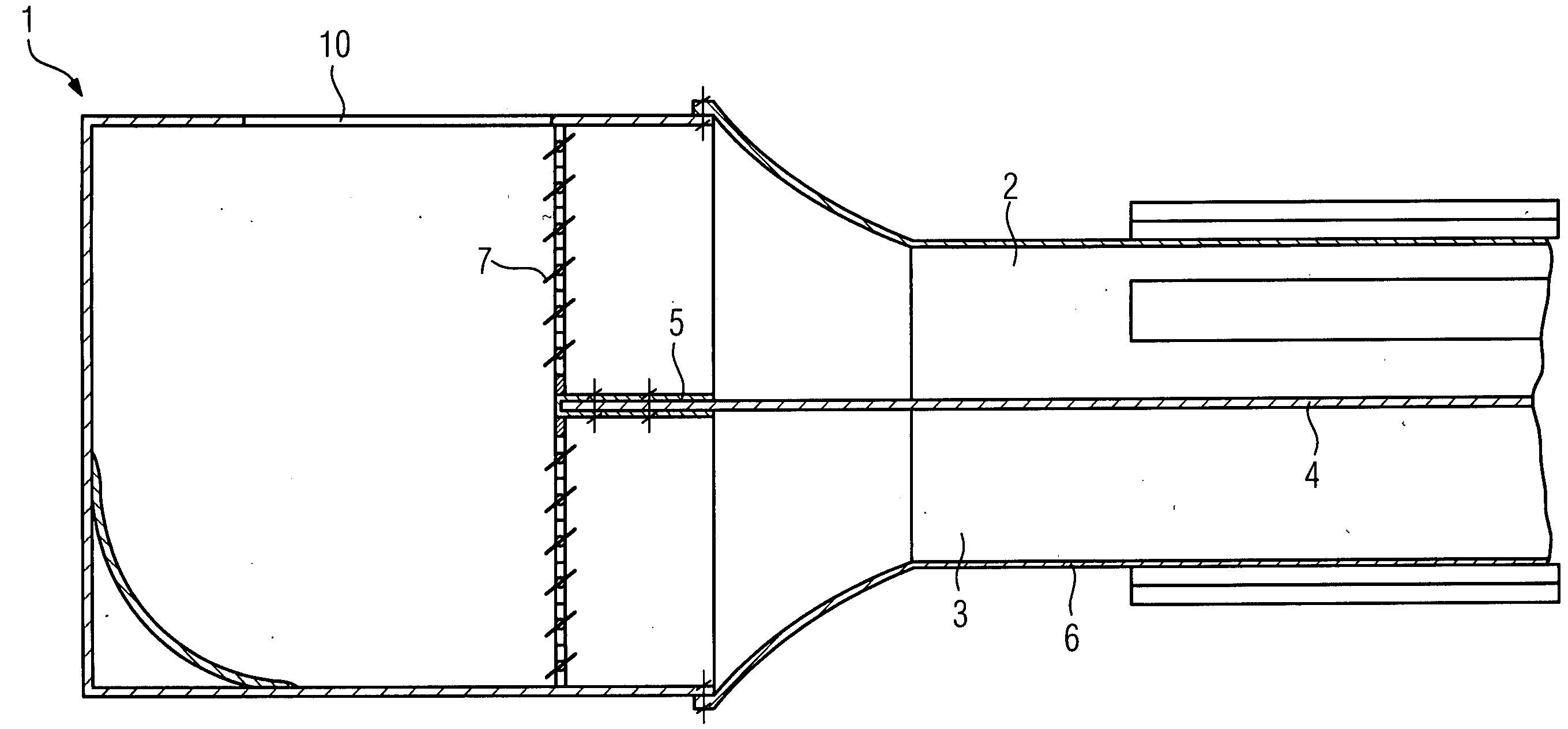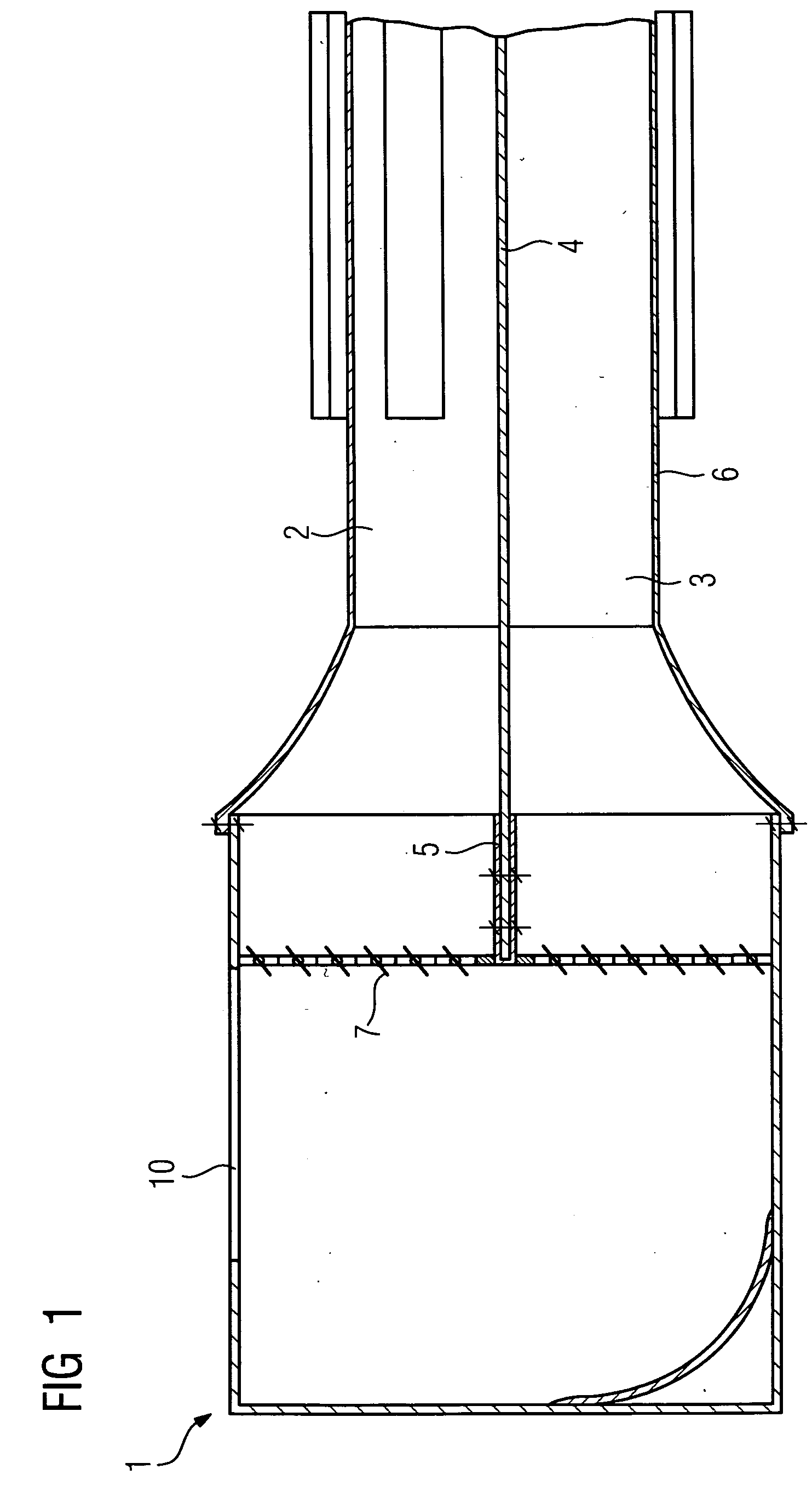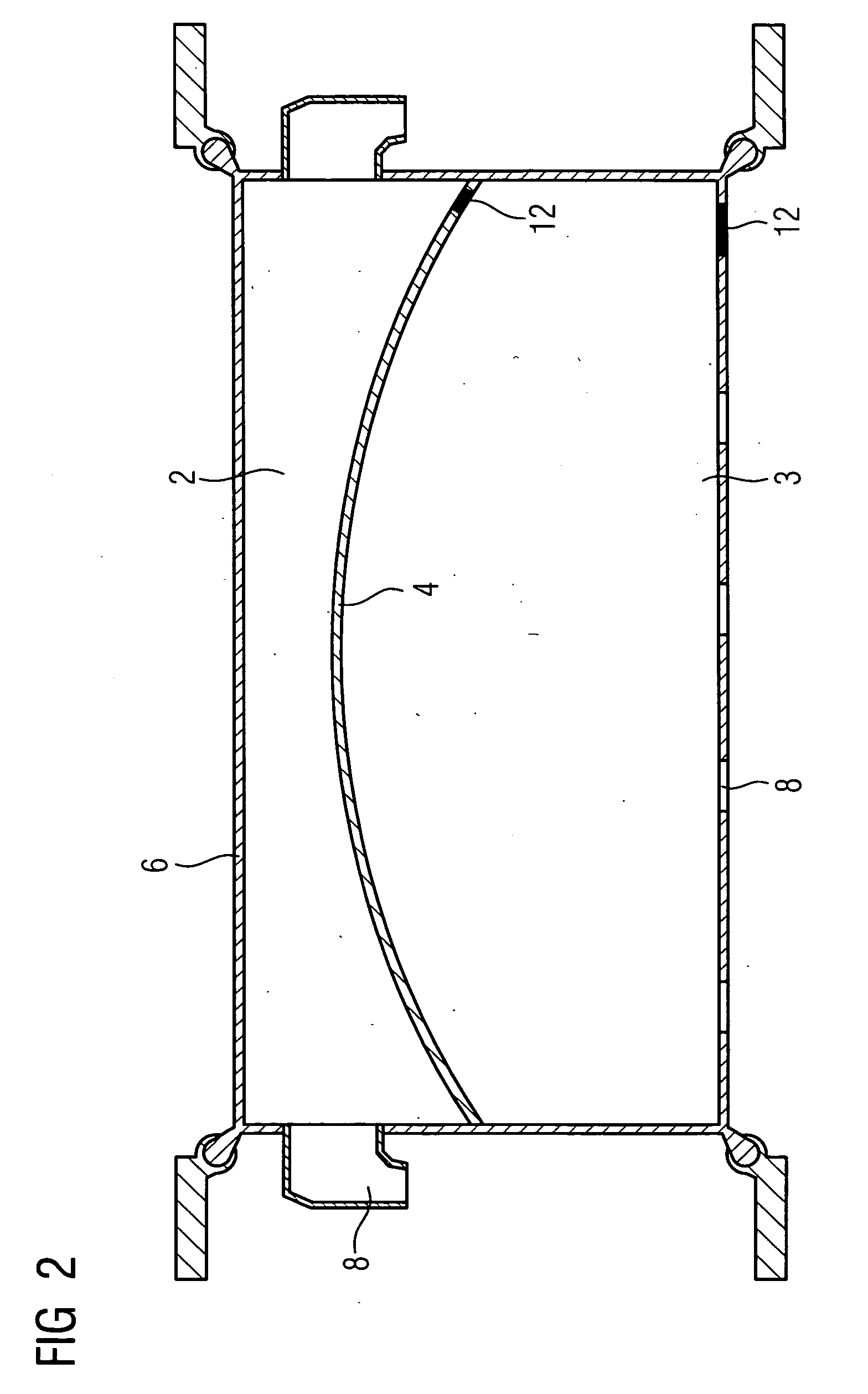Air Duct System for Vehicles, In Particular for Rail Vehicles for Passenger Traffic
a technology for air duct systems and vehicles, which is applied in vehicle components, railway heating/cooling, vehicle heating/cooling devices, etc., can solve problems such as noise generation and flow speed, and achieve the effects of reducing noise generation, increasing flow rate, and increasing noise generation
- Summary
- Abstract
- Description
- Claims
- Application Information
AI Technical Summary
Benefits of technology
Problems solved by technology
Method used
Image
Examples
Embodiment Construction
[0014]The air feed is blown out by an air-conditioning device (not illustrated here) and is intended to pass into the passenger compartment via an air duct system which is arranged in the roof area of the vehicle. According to FIGS. 1 and 4, for this purpose this air is firstly fed to a roof venting duct 1 via an air inlet 10 and is conducted by means of adjustable flaps 7 into a component venting duct 2 for warm air and / or into a component venting duct 3 for cold air. FIG. 1 illustrates the possibility of setting the flaps 7 in such a way that both component venting ducts 2 and 3 are supplied with air. In the exemplary embodiment according to FIG. 4, the flaps 7 are set in such a way that they clear the selected component venting duct 3 for cold air and close the component venting duct 2, which is not acted on, for warm air.
[0015]The air duct system according to FIGS. 1, 2 and 3 contains on the inside a deformable separating means 4 which is embodied as an airtight textile separati...
PUM
 Login to View More
Login to View More Abstract
Description
Claims
Application Information
 Login to View More
Login to View More - R&D
- Intellectual Property
- Life Sciences
- Materials
- Tech Scout
- Unparalleled Data Quality
- Higher Quality Content
- 60% Fewer Hallucinations
Browse by: Latest US Patents, China's latest patents, Technical Efficacy Thesaurus, Application Domain, Technology Topic, Popular Technical Reports.
© 2025 PatSnap. All rights reserved.Legal|Privacy policy|Modern Slavery Act Transparency Statement|Sitemap|About US| Contact US: help@patsnap.com



